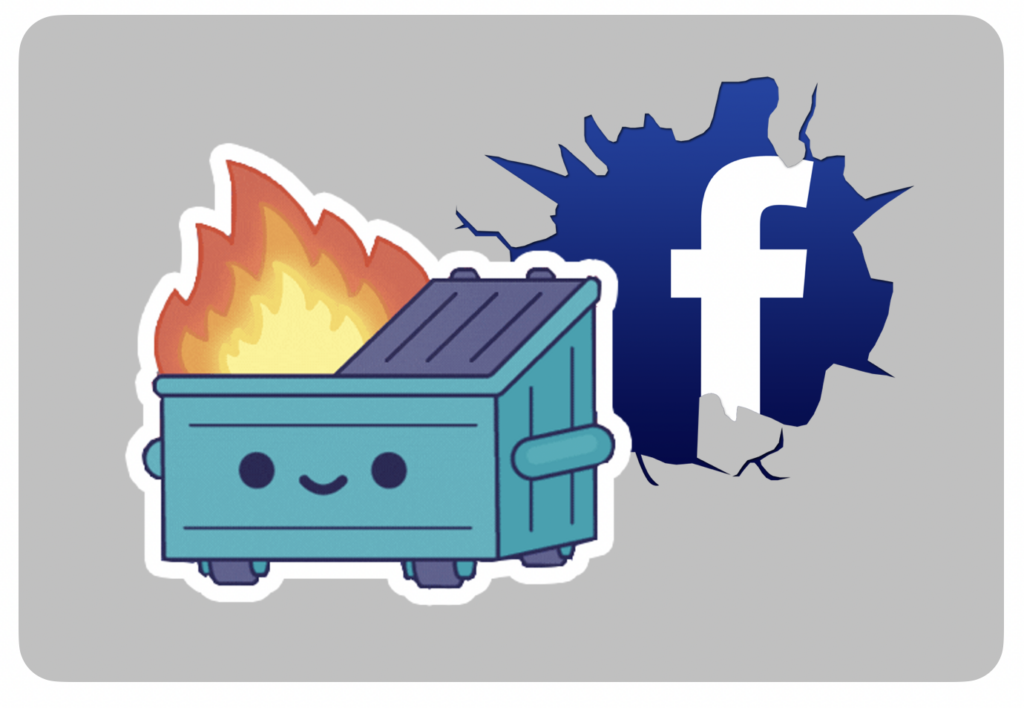
tl;dr
You can avoid a shitload of Facebõok problems by
- Using a separate browser that is only for Faceböok (such as Opera, Brave, etc)
- Stop using the mobile phone apps
- Unfriend people you don’t interact with much
All of these are described below.
IMPORTANT WARNING: If you are in an abusive relationship or being stalked, quit Facebõok, In-sta, and WhåtsApp immediately. Social media is the number one way abusers track down their victims. For help with domestic violence, telephone in the USA
https://www.thehotline.org
800-799-7233
Don’t use the Internet for this because your abuser may have tampered with your browser. Better to phone. Even better if you can use a friend’s phone.
Ways to Use Fåcebook More Safely
“… it works for me, so fuck off” (Friend)
This was a friend’s humorous response to my observations about Facêbook’s social and privacy problems. These are the kinds of things people in InfoSec/Cybersecurity are trained to notice. The only people I know who quit or drastically cut back on FB are InfoSec/CyberSecurity professionals or victims of FB retaliation. (Retaliation)
To almost everyone else, it doesn’t seem so bad or they haven’t yet experienced any harm. This blog will provide some ways FB is less than good for ordinary people. Then it will suggest some ways to reduce harm while using FB.
What harm?
Betty White famously framed one answer when she hosted Saturday Night Live due to a FB petition gaining over 1,000,000 likes. She said: “I didn’t know what Facebøok was. And now that I do know, it sounds like a huge waste of time.” Yes.
When I’ve shared with people horrible things about Fß, the most common response is “But I only use it to keep up with friends and family.”
Thus, people who might agree that FB is leveraged for evil by others, they still use it for themselves. This isn’t the first time people do things that aren’t good for them. That’s why I’m a big advocate of harm reduction. This is the simple idea that if you give people factual information about options and respect their dignity, they will do things in a way that is least harmful. Example of Harm Reduction: Wearing a seatbelt while driving. (Controversy)
First of all, what harm does FB inflict on ordinary people? It
- manipulates our emotions through it’s selection of what it shows us (CBS)
- makes us feel worse when we’re sad, down, or angry (Sad)
- wastes our time by making us look at things we don’t want (see Betty White above)
- fills our feed with ads that range from idiotic (ads1) to disturbing (ads2)
Harm Reduction Tactics
So in the interests of harm reduction, I offer the following suggestions for people who want to have a richer, safer, and more satisfying experience.
- Download and use the Mozilla Firefox browser with the FB container fence extension enabled (Fence)
- Unfriend people who don’t add positive value to your life
- Unfriend people whose constant bragging makes you compare yourself negatively
- Download and use the free version of CCleaner that will erase FB cookies and web storage files https://www.ccleaner.com (Reputable)
Harm Reduction Benefits
If you do these things, you will gain the following benefits:
- Your feed will be more specific to your needs (and not those of advertisers)
- You’ll enjoy better, richer interaction with friends and family
- YOU will be in control of your FB experience more than the algorithm
Not a Personal Problem
One of the blindspots we westerners have is that we tend to cast everything as an individual problem. We’re not very good at group thinking. This hilarious mock educational film about Faceboök Manners is a good example of side-stepping group and corporate responsibility .
Privacy Badger
Although not specific to FB, when it comes to online protection, I highly recommend the Electronic Frontier Foundation’s Privacy Badger that can be added to Firefox, Chrome, Edge, and Opera https://privacybadger.org/
Additional Info
For me, FB is one big steaming pile of holocaust deniers, racists bigots, a flood of raw sewage disinformation and info-warfare by well-funded troll farms, and the target of many breaches of user data.
- For more on the weaponization of social media, please read this report from the United States Army Fort Lesley J. McNair https://wmdcenter.ndu.edu/Publications/Publication-View/Article/2422660/social-media-weaponization-the-biohazard-of-russian-disinformation-campaigns/
- For more about the data breaches and data theft from FB, please read: https://firewalltimes.com/facebook-data-breach-timeline/
- For more about the well-funded troll farms on FB: https://www.technologyreview.com/2021/09/16/1035851/facebook-troll-farms-report-us-2020-election/
- For more about the holocaust deniers on FB, please read: https://www.adl.org/blog/one-year-after-ban-holocaust-denial-remains-on-facebook
- For more about racists on FB, please read: https://www.vice.com/en/article/epxeka/facebooks-new-ai-system-has-a-high-propensity-for-racism-and-bias
Footnotes
(Friend) This partial quote is wildly out of context. After listening to my technology and privacy concerns about Facébook, he humorously replied: “Well, you do security for a living so I respect your views, but it works for me, so fuck off.” Still makes me laugh recalling that.
(Retaliation) FB does not welcome criticism: https://www.technologyreview.com/2021/07/29/1030260/facebook-whistleblower-sophie-zhang-global-political-manipulation/
(Controversy) Harm reduction for illicit drugs more controversial. Teaching people to use alcohol pads to cleanse needles can prevent infection, but many “guardian types” insist that they only approach should be “Don’t Do Drugs!!!”
(CBS) “The thing I saw at F B over and over again was there were conflicts of interest between what was good for the public and what was good for F B. And FB, over and over again, chose to optimize for its own interests, like making more money.” https://www.cbsnews.com/news/facebook-whistleblower-frances-haugen-misinformation-public-60-minutes-2021-10-03/
(Sad) Science Explains How FB Makes You Sad https://www.psychologytoday.com/us/blog/what-mentally-strong-people-dont-do/201603/science-explains-how-facebook-makes-you-sad
(ads1) When I was active on F B, I received countless ads for very expensive gentlemen’s underpants. I would screen-capture those for fun. How do you say “gay” without saying “gay”? Code an ad to reach men in certain zip codes in a relationship with someone of the same gender. In 2018, FB made a video just for me. I was sure to use those screen-captures:
(ads2) An ad looking to drum up a class action suit against PrEP medicines showed up in my feed in 2018. When I clicked on “Why am I seeing this ad?” the info was the advertiser was looking for people who live or lived in California. They did NOT reveal the whole search criteria. They were looking for gay men, using advanced search logic such as zip codes, cities, relationship status with another of the same sex, gender, etc..
Some people deny that FB allows advertisers to target gay men. How many straight men would wear the shirt on the left?

(Fence) Faceböok Container works by isolating your FB identity into a separate container (like a fence) that makes it harder for Fa cebook to track your visits to other websites with third-party cookies.
(Reputable) There are many bad programs that claim to clean up your computer, but actually contain adware or spyware. Be sure to use one that has a good reputation such as CCleaner
Change History
01/2025: The recommendation to use the old mobile version of F B has been removed. Using it will get you flagged as not human and booted out of groups by an algorithm.



